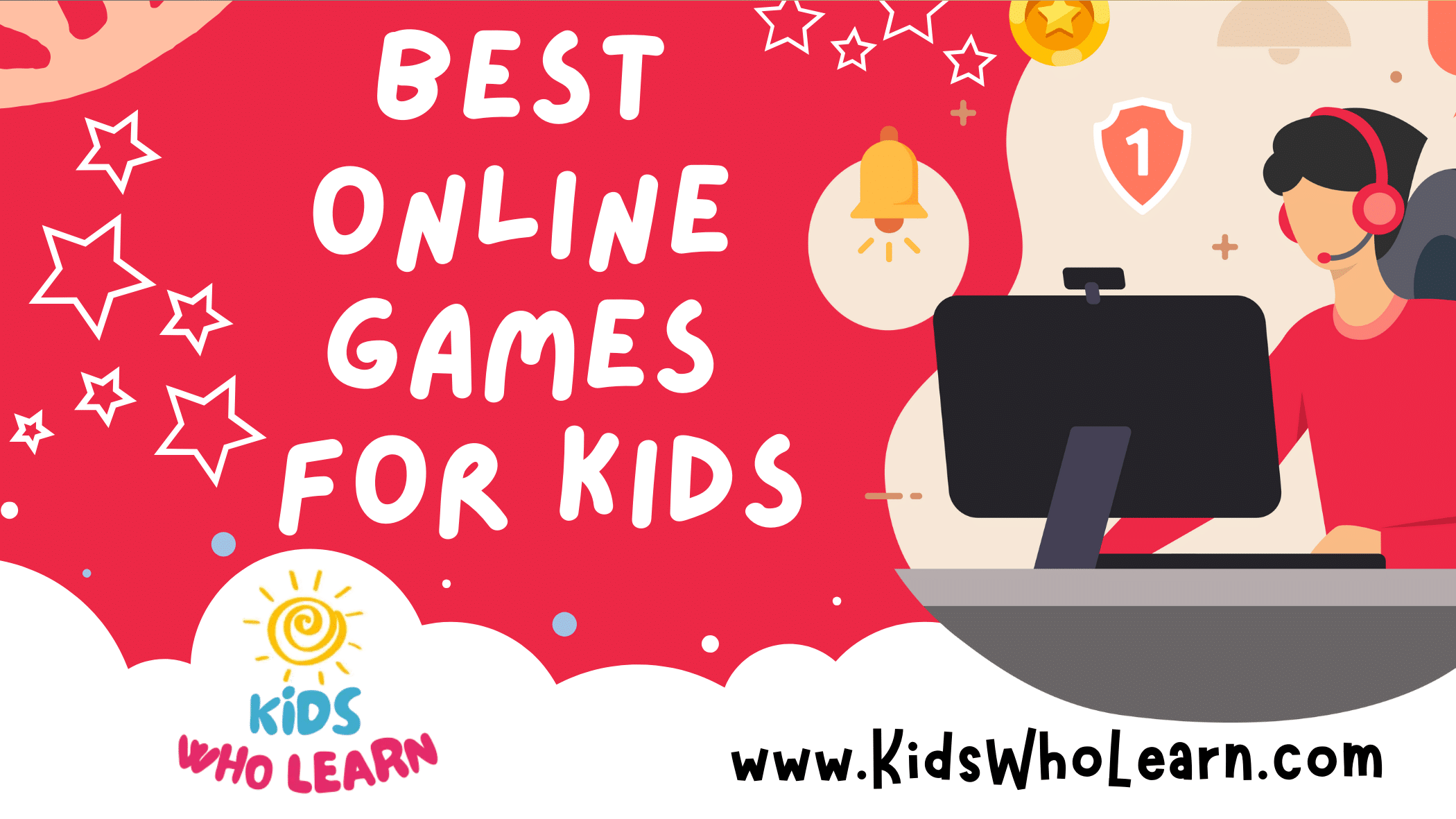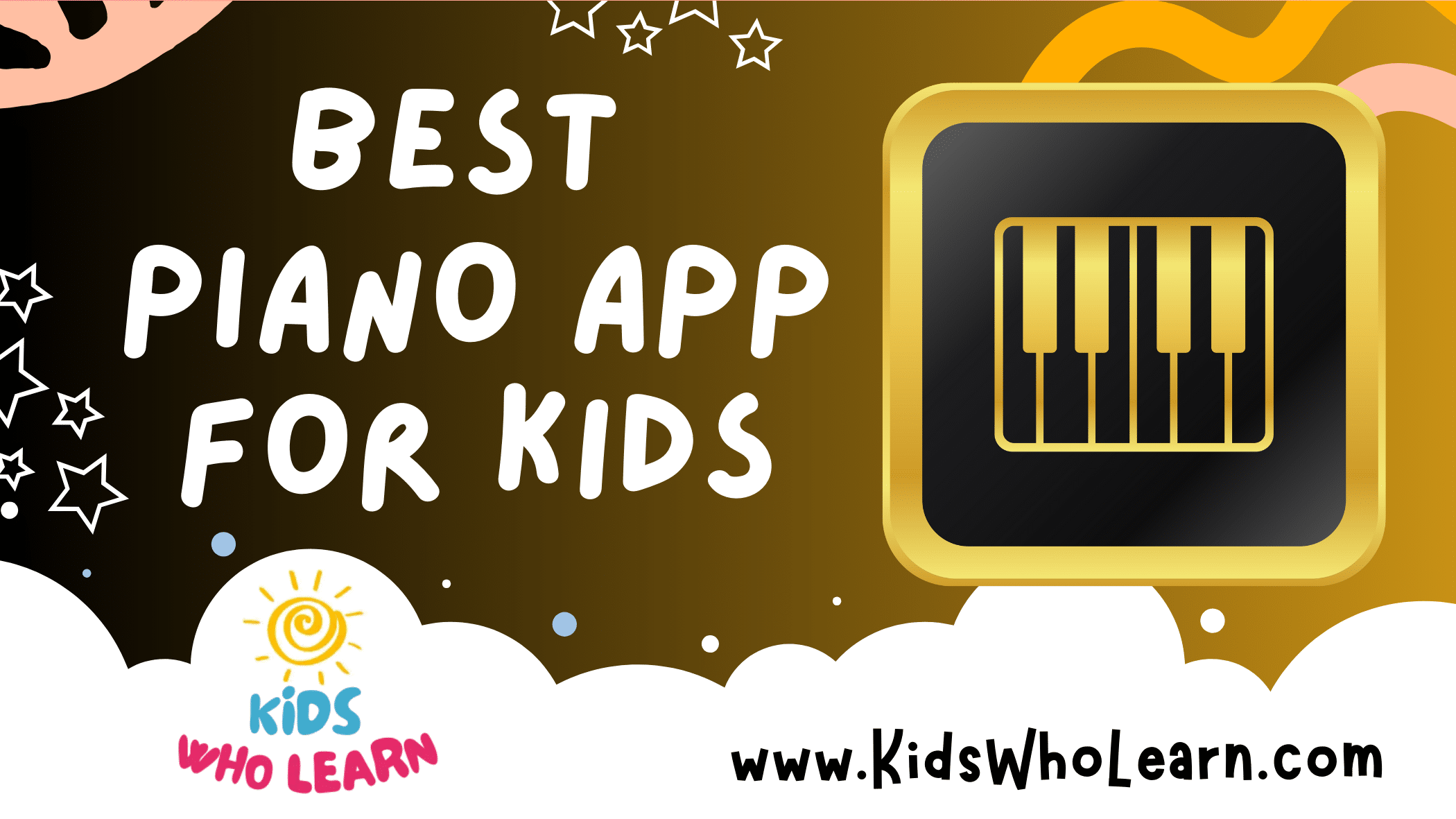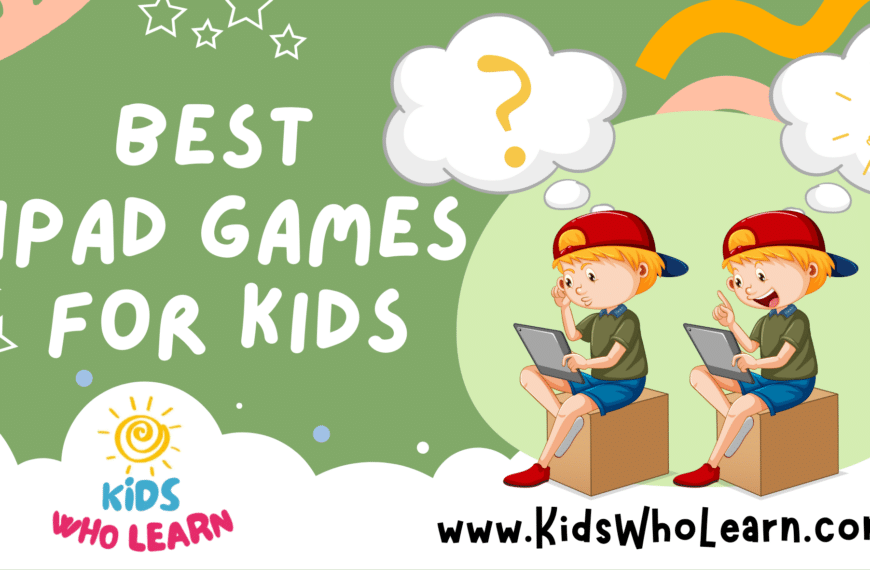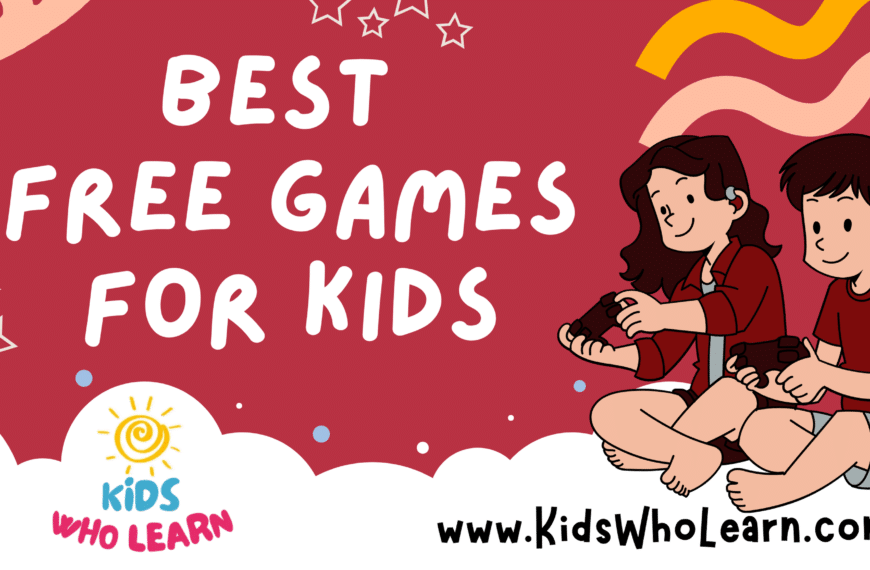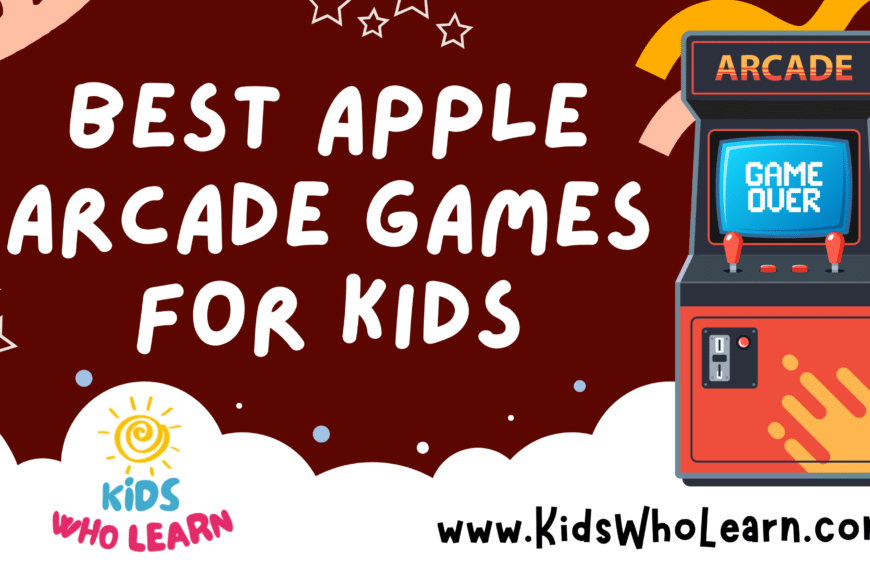Online games for kids have become a thriving ecosystem, offering various benefits and entertainment. These games are specially crafted to provide not just fun, but also educational content that can aid in cognitive development. From puzzles that sharpen problem-solving skills to interactive storytelling that enhances language learning, such platforms are an enriching source of digital play.
However, with the vast array of games available on different devices, parents face the challenge of finding age-appropriate and safe options for their children. It’s fundamental to consider games that offer a healthy balance between learning and play, while also keeping in mind the child’s interest and age group. The digital age presents a unique opportunity for kids to engage with their favorite characters and stories through these games, fostering a sense of joy and wonder while navigating through virtual worlds.
Yet, this exciting form of entertainment also demands a level of parental involvement. Guidance is key in managing screen time, ensuring online safety, and providing information about the varying costs of these games. As the landscape of children’s online games continues to evolve, staying informed about the latest trends and features is vital for making smart choices that align with your family’s values and budget.
Key Takeaways
- Educational and age-specific games enhance learning and cognitive development.
- Parental guidance in game selection and playtime is critical for child safety.
- Knowledge of game trends, features, and costs helps in making informed decisions.
Educational Online Games
Online gaming can be a powerful tool for learning when it involves educational games designed to enhance your child’s knowledge and skills across a variety of subjects. We have curated a list of categories that cover a broad range of educational games, which can be easily accessed on a tablet, computer, or via the web.
STEM Games
In the STEM category, you can find science and engineering games that make learning about these subjects engaging. Math games on platforms like CoolMath4Kids combine fun characters with arithmetic challenges to strengthen your child’s math skills. For a computer science twist, games like Code Karts introduce pre-coding logic through entertaining puzzles and races.
Literacy and Language
Educational games that focus on reading and writing can vastly improve your child’s language skills. Through interactive stories and activities on sites like PBS Kids, young learners can engage with their favorite characters while enhancing literacy.
Art and Creativity
Encouraging your child’s artistic side is easy with online games focused on art, crafts, and design. Platforms allow kids to express their creativity by creating avatars, painting, or working on digital crafts, nurturing an appreciation for the arts.
Problem-Solving & Logic
Games that tackle problem-solving and logic such as puzzles and strategy games are essential for critical thinking development. Puzzle games often feature scenarios where children can use problem-solving tactics in playful and imaginative settings.
Geography and Social Studies
Explore the world from the comfort of your home with geography and social study games. They often include travel to different locations, interaction with diverse communities, and activities using a world map, helping children understand and appreciate global cultures and geography.
Health and Biology
Health and biology educational games are designed to teach your child about the human body, food, plants, and animals. Interactive games that allow kids to explore different aspects of biology can inspire a lifelong interest in the sciences.
Games for Different Age Groups
Selecting appropriate online games for kids requires consideration of their age and developmental stage. Games differ in content, difficulty level, and the skills they promote.
Toddlers & Preschoolers
For your youngest gamers, look for games that mix fun with educational content. PBS Kids offers titles like Elmo’s World Games and Cat in the Hat Builds That which are age-appropriate and focus on basic math and reading skills. They’re easy to navigate and introduce educational concepts gently.
Elementary Age Kids
Kids in this age group can handle a bit more complexity. Games such as Minecraft can encourage creativity and problem-solving. At this stage, games should still focus on learning, but with an added level of difficulty appropriate for kids who are mastering reading and math fundamentals.
Preteens
Preteen gamers are ready for more challenging gameplay, often with a social component. Console games on platforms like Nintendo often feature heroes and wizards that engage children in immersive role-playing games. Nonetheless, it’s important to monitor their online interactions, given the increasing prevalence of social media elements in games.
Teens
Teen gamers are adept players with a wide range of interests. Look for Uno online, which exercises strategy skills in a familiar card game format, or dive into more complex role-playing games that challenge their problem-solving abilities. Ensure the games are challenging but also foster a safe online gaming environment.
Interactive and Social Games
Interactive and social games provide a dynamic environment where you can connect with friends, join communities, and engage in various types of gameplay. These games often feature the creation of avatars, acquiring items, and caring for pets, which enhance the interactive experience.
Multiplayer Online Games
Minecraft stands out as a prime example of a multiplayer online game that emphasizes creativity and collaboration. You can build your world, explore with friends, and engage in team games. Multiplayer games also include classics like chess. Websites like Chess.com allow you to play against friends or join larger chess communities.
Educational Social Platforms
For a younger audience, PBS Kids offers educational games where your interactions can foster learning and social development. These platforms usually incorporate a range of characters and scenarios that teach children various subjects through play.
Family Collaboration Games
Family collaboration games are excellent for engaging in gameplay with your loved ones. You might find yourselves working together in a virtual board game or a co-op video game. These games often require strategizing and problem-solving as a team, which can be a fun way to bond.
Role-Playing & Adventure Games
In role-playing and adventure games, you have the opportunity to create your own characters, known as avatars, and dive into a world of quests and exploration. Games like Wizards 101 provide a magical setting where you can cast spells and progress through the game with a group of friends, forming a tight-knit community within the game’s universe.
Character and Franchise Based Games
Online games based on popular characters and franchises offer a blend of engagement and familiarity. You get to interact with favorite personalities and worlds from TV shows, movies, and more.
PBS Kids Games
PBS Kids provides a range of educational games that feature beloved characters from their various series. For instance:
- Arthur: Dive into Elwood City and play games that explore friendship and problem-solving.
- Daniel Tiger: Join Daniel and friends for games focused on emotional intelligence and daily life routines.
These games enforce learning through play, and feature characters that your kids already know and love.
Superhero and Comic Games
Engage with your favorite superheroes through numerous online games that often involve completing missions, defeating villains, and saving the world.
- Nintendo: Characters like Mario have crossed over from video games to other media and back, with games that encourage exploration and adventure.
- Superhero Licensing: Extensive licensing agreements bring comic book heroes to life, allowing you to experience their powers in video game form.
These games allow you to step into the boots of your favorite heroes and participate in action-packed adventures.
Animated Series and Film Games
Animated series and film characters come to life in games that extend the experience of the TV shows and movies.
- TV Shows: Characters from animated series are often brought into interactive experiences where you can control their actions and decisions.
- Movies: Games tied to movie franchises let you explore narrative worlds, often with direct references to film events.
Whether it’s through narrative explorations or free-play environments, you get to experience firsthand the excitement and challenges your favorite characters face on screen.
Games by Device
Selecting suitable online games for your children depends heavily on the devices they have access to. From mobile apps to console exclusives, each category offers a unique gaming experience tailored to the device’s capabilities.
Mobile and Tablet Games
If your kids have access to smartphones or tablets, they have a wealth of gaming options at their fingertips. These devices typically run on iOS or Android platforms, meaning they can access games through the App Store or Google Play.
- iOS (Apple Devices)
- App Store: Offers a vast selection of games optimized for iPhones and iPads.
- Family-Friendly Picks: Look for games with the “Ages 4+” or “Ages 9+” labels for age-appropriate content.
- Android (Various Manufacturers)
- Google Play: Home to numerous games that are compatible across a wide range of devices.
- Parental Control: Use Google Play’s parental controls to ensure your kids download suitable games.
Console Gaming for Kids
Consoles like Nintendo, Xbox, and PlayStation provide immersive gaming experiences catered to different age groups. Check device compatibility and parental control options for a safe and happy gaming setup.
- Nintendo Switch
- Durability: Great for younger children due to its sturdy build and portable option.
- Games: Offers exclusive franchises such as Mario and Zelda that are often family-friendly.
- Xbox and PlayStation
- Online Services: Xbox Live Gold and PlayStation Plus provide access to multiplayer games and free monthly titles.
- Parental Controls: Both platforms offer extensive parental controls to monitor and restrict game usage.
Computer and Web-Based Games
For kids who prefer a mouse and keyboard, computers offer a range of free and premium online games.
- Web Browser Games
- Ease of Access: No need for powerful hardware; many entertaining games are playable directly in your web browser.
- Variety: From puzzles to educational titles, free online games cater to various interests and age levels.
- PC Gaming Platforms
- Steam: A popular platform with an extensive library of games, featuring user reviews and system requirement details.
- Educational and Indie Games: Often have less demanding hardware requirements, making them perfect for a family computer.
When choosing games by device, always consider the compatibility and availability of parental controls to ensure a safe and age-appropriate gaming environment for your kids.
Practical Advice for Parents
When managing your child’s online gaming experiences, it’s crucial to implement guidelines that balance fun with safety and learning. Take into account your family’s schedule, whether it be around school hours or your work-from-home office space, and remember that the kitchen clock isn’t just for baking; it can help to keep track of gaming time as well.
Setting Time Limits
Create a schedule that fits with your child’s lifestyle, including school and family time. Maintain a consistent routine to ensure that gaming is balanced with other activities. For instance:
- Weekdays:
- 1 hour of playtime after school and homework completion.
- 30 minutes before dinner as a break.
- Weekends:
- 2 hours split between morning and afternoon sessions.
Use tools like parental control apps to monitor and enforce these time limits.
Internet Safety and Privacy
When your child is online, their privacy and safety are paramount. You should:
- Teach them never to share personal information online.
- Familiarize yourself with game privacy settings to:
- Restrict who can communicate with your child.
- Limit exposure to potentially harmful content.
- Encourage your child to report any unusual activity or interactions to you immediately.
Educational Value and Skills Development
Choose games that have a clear educational benefit, such as those reinforcing math or science concepts, or even games that introduce basic coding. Here are some guidelines to identify educational games:
- Look for games that align with your child’s school curriculum for congruity between play and learning.
- Select games that challenge problem-solving and critical thinking skills.
- Verify the educational content is age-appropriate and engaging.
Game Creation and Development for Kids
Engaging in game creation and development offers your child a unique opportunity to sharpen their coding and design skills while expressing their creativity. They’ll learn how computer science underlies games they love, and develop their own characters and worlds with interactive learning tools.
Coding for Kids
To kick off your child’s journey in game development, coding is the first step. Several software platforms make learning to code accessible and fun. Code Karts is a great example, introducing programming concepts through puzzles and races. For children interested in more advanced topics, there are resources that teach languages like Python or JavaScript, which are fundamental for creating interactive games.
- Platforms for Beginners:
- Scratch: Uses visual blocks to teach programming basics
- Tynker: Offers a variety of games and puzzles to learn code
- Code.org: Provides a range of activities and lessons for all levels
- Advanced Software:
- Stencyl: Allows creating games using code blocks and writing actual code
- Unity: For older kids ready to engage with professional game development
Game Design Basics
Your child’s first foray into game design starts with understanding the core principles such as world-building and graphics. They learn how to design engaging characters and settings that tell a story. This foundation is crucial for creating the immersive experiences gamers cherish.
- Core Elements:
- Storytelling: Developing the narrative and role of characters
- Level Design: Structuring the game’s challenges and layout
- Art and Visuals: Crafting the visual style and graphics of the game
Tutorials and Resources
A wealth of tutorials are at your child’s fingertips, allowing them to learn at their own pace. YouTube is a treasure trove of step-by-step guides on everything from basic coding to detailed game design.
- YouTube Channels:
- KidsCanCode: Focuses on teaching Python through game projects
- Brackeys: Offers tutorials on game development using Unity
Additionally, numerous online platforms and e-books offer structured courses and activities that cater to various age groups and skill levels.
Online Communities and Sharing
The value of community in learning game development cannot be overstated. Peer feedback and skill development are fostered within these communities, helping your child improve their projects. Social media can be a great place for children to showcase their games, get constructive criticism, and connect with like-minded peers.
- Popular Communities:
- Scratch Online Community: For sharing and discussing Scratch projects
- Unity Forum: For older kids engaged in more complex games using Unity
Remember, the goal is to provide a supportive and educational environment where your child can experiment and learn without fear of making mistakes.
Features and Trends in Kids’ Online Gaming
In recent years, kids’ online gaming has evolved significantly, incorporating cutting-edge technology and engaging gameplay that supports developmental benefits.
Trending Online Games
Minecraft and Roblox continue to dominate as highly popular platforms among children, offering creative freedom and social interaction. These games serve as a virtual playground where your young ones can expand their imagination and build worlds of their own design. They remain at the forefront due to their ability to provide endless free play experiences, setting trends in the gaming community.
| Popular Games | Key Features |
|---|---|
| Minecraft | Creativity, building, survival modes |
| Roblox | Game creation, virtual economy, social |
Technology Advancements in Gaming
Innovations like Virtual Reality (VR) and Augmented Reality (AR) are revolutionizing how children interact with games. VR headsets, such as Oculus Quest, immerse players in a three-dimensional environment, greatly enhancing their gaming experience. Similarly, AR apps on smartphones can overlay gameplay onto the real world, allowing for a more integrated play. These tech advancements are setting the stage for the future of children’s interactive experiences.
Role of Gaming in Child Development
Gaming can significantly contribute to the development of cognitive, motor, and social skills. Puzzle games like Tetris or Candy Crush can improve problem-solving skills and enhance cognitive development. Action games, on the other hand, may boost motor skills by requiring precise timing and control. Meanwhile, multiplayer games foster social skills as children negotiate, collaborate, and communicate with peers worldwide.
By staying informed about these dynamic elements of online gaming, you can better understand and guide your child’s engagement with these virtual environments.
Plans and Pricing for Online Games
When selecting online games for kids, understanding the financial implications of free versus paid games, in-game purchases, and membership options is crucial for informed decision-making.
Free vs Paid Games
Free games often sound appealing, but your access to content is typically limited compared to their paid counterparts. On the other hand, paid games generally demand a one-time upfront cost, providing full access to the game. They may offer better value if they come with extensive content and no additional purchases required.
| Type | Budget Impact | Content Access | Cost-Efficiency |
|---|---|---|---|
| Free Games | Low | Limited | Varied |
| Paid Games | Higher | Extensive | Typically High |
In-Game Purchases and Microtransactions
Many games feature in-game purchases, where you can acquire virtual currency, items, or upgrades. These microtransactions can quickly add up, so it’s important to monitor your spending against your budget. They can offer more immediate gratification in gameplay but may not always represent long-term value.
| In-Game Purchases | Content Unlocked | Impact on Gameplay |
|---|---|---|
| Currency | In-game assets | Optional |
| Items | Cosmetics/Equipment | Optional |
| Upgrades | Abilities/Levels | Varies |
Membership Benefits and Family Plans
Memberships or family plans provide a slew of benefits including access to exclusive content, discounts, and sometimes in-game perks. They can be cost-efficient if multiple users in your household are playing the game. Look for memberships that offer content which would be more expensive if purchased separately.
| Membership Types | Benefits | Considerations |
|---|---|---|
| Individual | Exclusive content, Discounts | Cost-effectiveness for single user |
| Family Plans | Multiple accounts, Greater discounts | Shared benefits, Higher initial cost |
Always compare the long-term value provided by memberships against the cost, especially if they include features your child frequently enjoys.
Conclusion
When selecting online games for your kids, prioritize a diverse game selection to ensure a variety of engaging experiences. Aim for titles that provide educational content and foster creativity while ensuring entertainment for the whole family.
Maintaining a balance is key. Encourage your children to engage in gaming as part of a well-rounded lifestyle that includes physical activity and offline interests.
To make informed decisions, refer to credible recommendations from trusted sources that evaluate content appropriateness and educational value. Here’s a quick format to help you remember the essentials:
- Game Selection: Diverse, engaging, educational
- Family Entertainment: Games that you can enjoy together
- Balance: A mix of screen time and other activities
- Recommendations: Trustworthy reviews and ratings
Remember, the best online games are those that align with your values while captivating your kids’ interests.
Frequently Asked Questions
Online games for kids can be both entertaining and educational, but it’s important to choose the right ones. Here, you’ll find answers to common questions about online gaming for children.
What are some of the best free online games for children to play with their friends?
Popular free online games for children include ‘Roblox‘, where kids can create and play in virtual worlds, and ‘Fortnite’, which offers a cartoonish multiplayer experience. Both are great for playing with friends.
Which online games are highly recommended for children aged 7?
For children who are 7 years old, educational games such as ‘PBS Kids Games’ and ‘National Geographic Kids‘ offer fun and learning simultaneously. ‘Animal Jam’ also provides a safe, enjoyable platform for this age group.
Can you list safe and popular online gaming platforms for children?
‘Scratch‘ from MIT allows kids to program their own interactive stories, games, and animations, promoting both creativity and logical thinking. ‘Minecraft’ with its educational edition can be highly constructive and is closely monitored for safety.
What are the leading free-to-play online games for kids that require no downloads?
Browser games such as ‘Slither.io’ and ‘Prodigy Math Game’ encourage competitive play and learning without the need for downloads. They are accessible and easy to get started with.
What video games have gained the most popularity among kids in 2023?
In 2023, ‘Among Us’ continues to be a hit for its social interaction and ‘Minecraft’ remains popular for its creative and expansive gameplay. These games have maintained a strong following among kids.
How can parents ensure the games their kids play online are safe and appropriate?
Parents should utilize game platforms that offer robust parental controls and kid-friendly content. Focusing on games that have received positive reviews from trusted family-centric organizations is another way to vet the suitability of online games for their kids.

